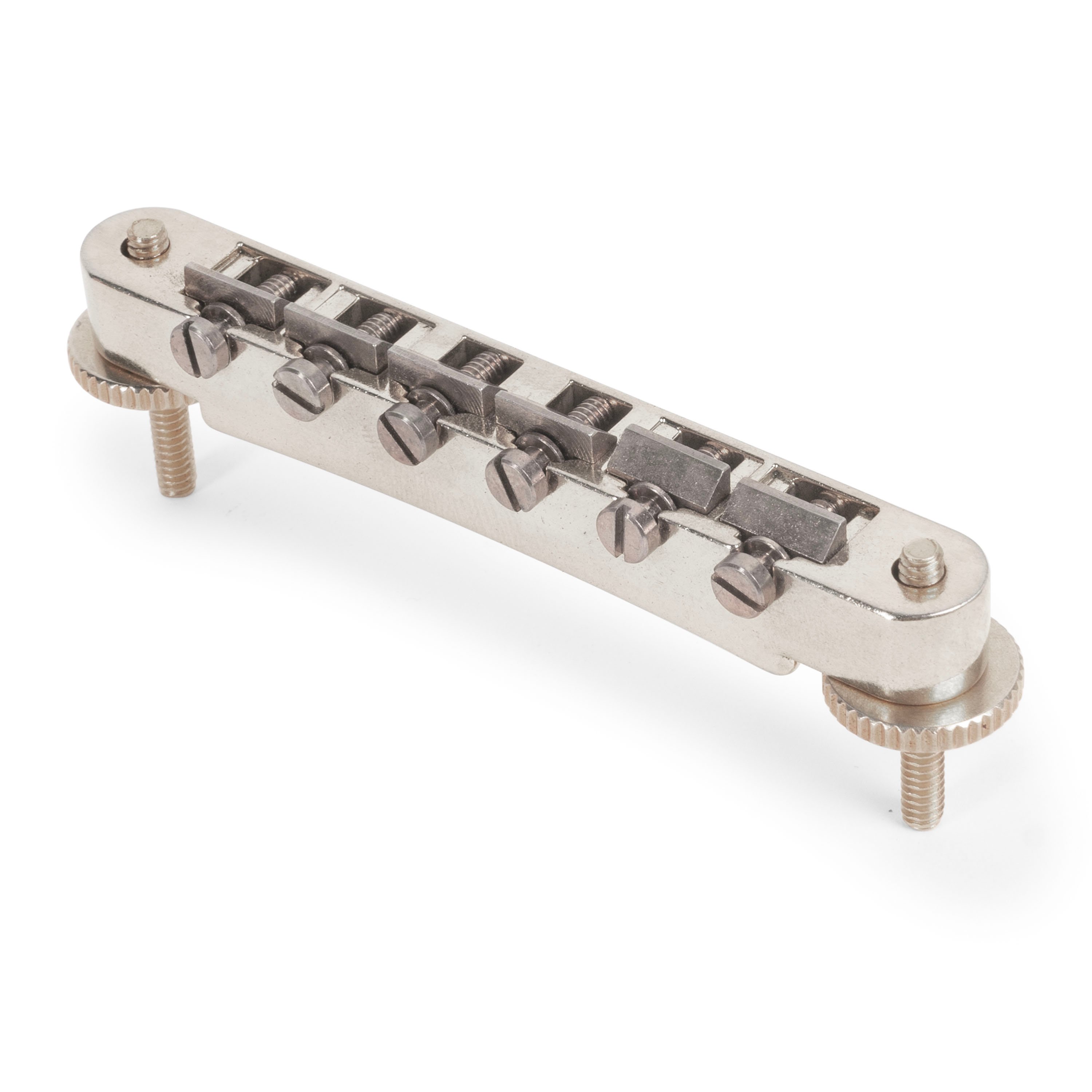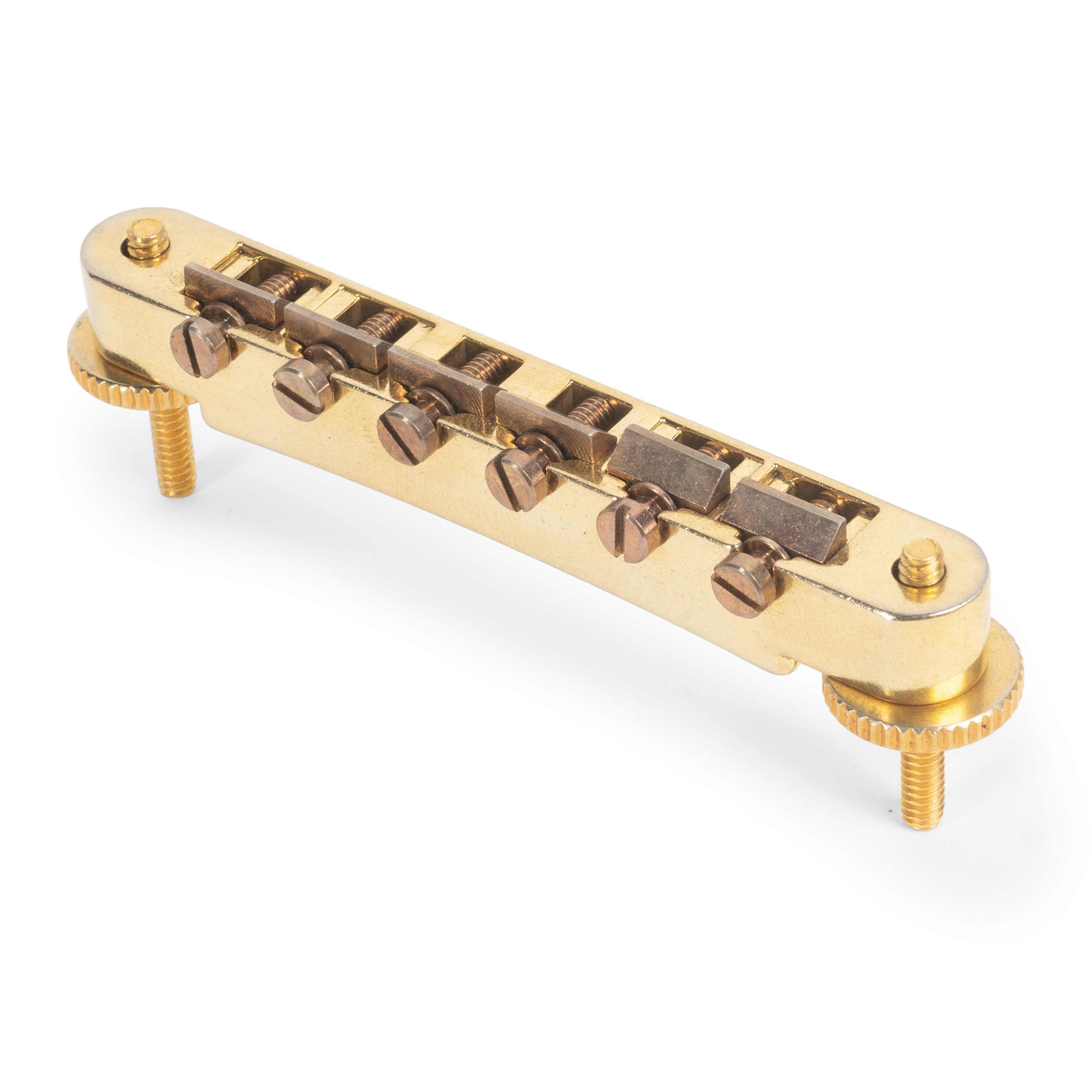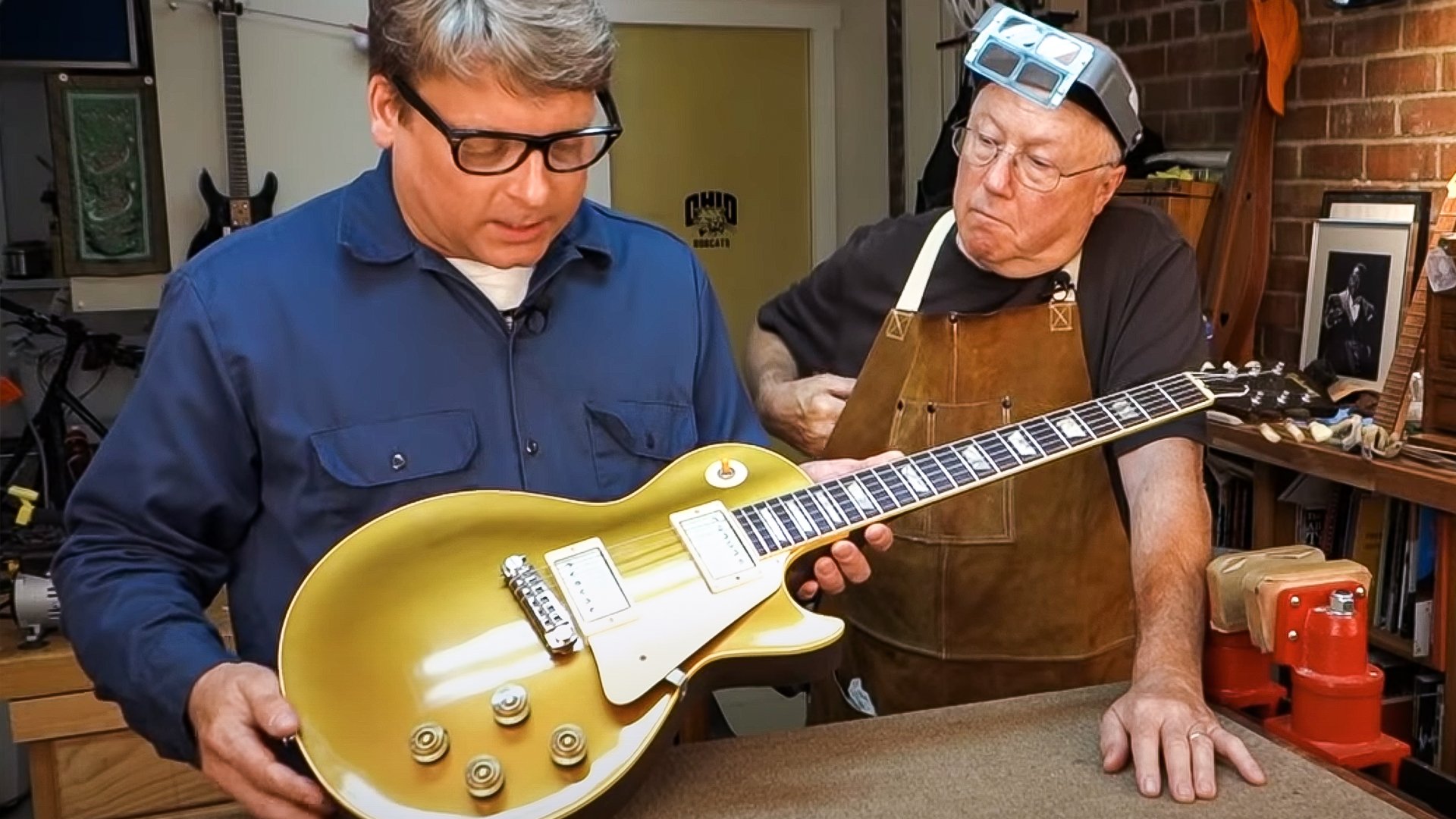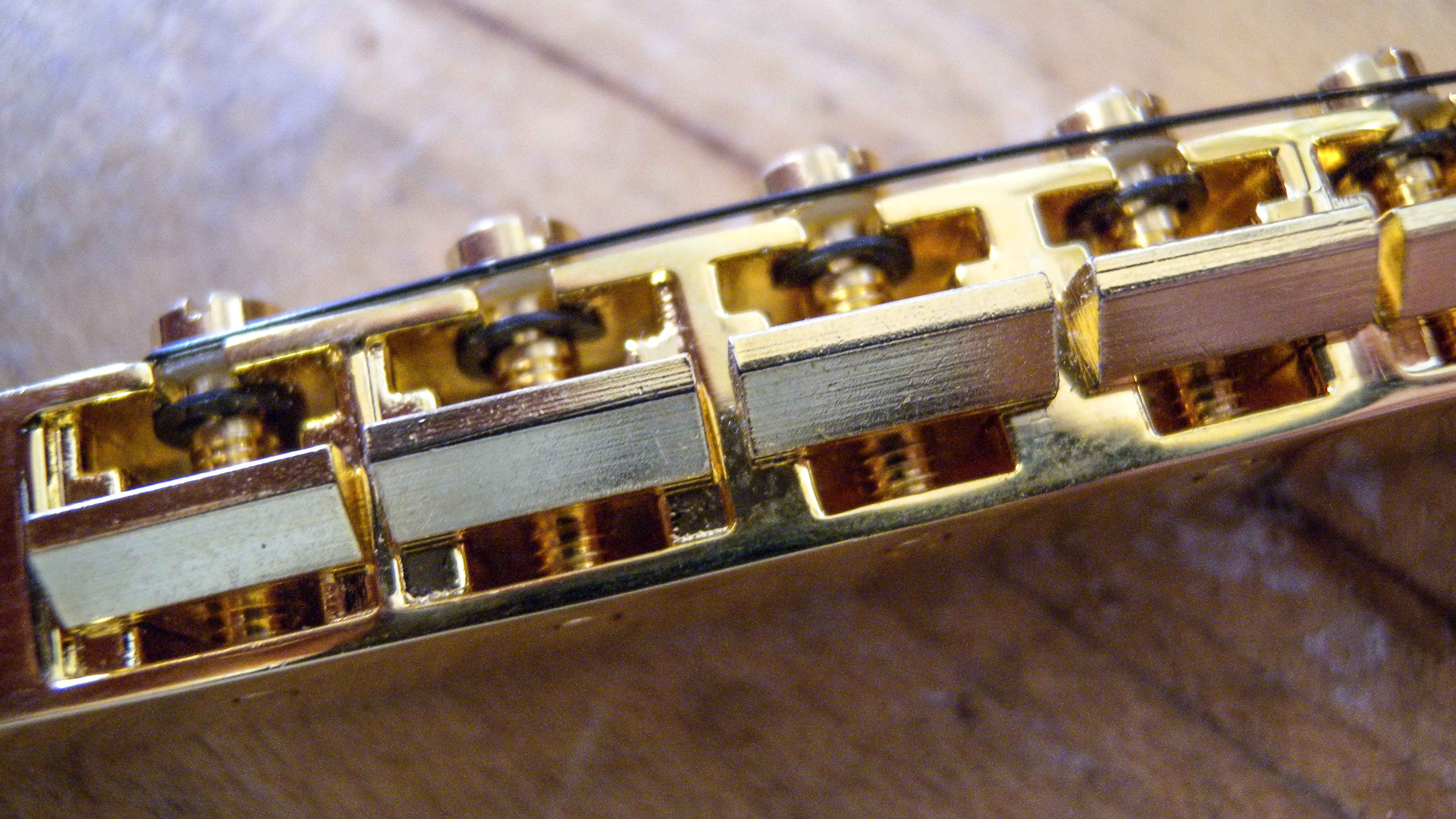GuitarSlinger Cryocated Aged Non-Wire ABR-1 Tune-o-matic Bridge


GuitarSlinger Cryocated Aged Non-Wire ABR-1 Tune-o-matic Bridge
We love a guitar that's been played hard and maybe has a few scars, it's been making music for decades. With adventures comes injury and loss—and a shiny new replacement part is going to ruin the mojo.
GuitarSlinger has expertly recreated those hard to find parts to vintage specs to restore your treasured road dog. Each hand-aged piece has the grit, grime, and vibe to be right at home on your well-loved guitar.
Cryogenically-treated hardware
Going one step further, each piece is cryogenically frozen or "cryrocated", exposing the hardware to extremely low temperatures (-292°F/-180°C) which shortens the relicing process and stabilizes the metal. GuitarSlinger states that the treated hardware has richer harmonics and higher conductivity.
- Authentically aged bridge, post, and thumbwheel set
- Cryocated metal and aging stabilization treatment
- Handmade—each is unique
Timeless 1950s technology
Debuting in 1953, the ABR-1 tune-o-matic bridge revolutionized guitars forever. It's been standard equipment on countless Gibson® Les Paul®, SG®, 335 models, and more for decades. Using historic factory specs and materials, it's a vintage correct drop-in upgrade for your favorite guitar. This bridge has no retainer wire just like those used before 1962.
Also available as an aged wired ABR-1 bridge.
Dimensions:
String Spread: 2-1/32" (51.56mm)
Saddle Radius: 12" (304.80mm)
Post Spacing: 2-29/32" (73.66mm)
Post Threads: 6-32 x 1-1/16"
Features:
Unnotched brass saddles for custom string spacing
Closed-bottom construction
Includes steel posts and brass thumbwheels
String spread is the distance between the centers of the outer strings on a bridge or tailpiece.
Saddle radius determines the arc formed by all the individual saddle heights, and is similar to the measurement of a fretboard.
Stud/post spacing is the distance between the centers of the mounting posts of a bridge or 'stop' tailpiece.
Find bridge placement for any scale with our free online tool fret position calculator.
Tip: Slotting Tune-o-matic style saddles
Nut slotting files work great for metal saddles. Choose your file size as you would when slotting a nut: use the same gauge as the string, or a few thousandths larger. After filing to the desired depth, we suggest polishing the slot with Mitchell's Abrasive Cord to remove file marks and burrs.
-
- Item #
- Weight
-
- 102094
- 0.166 lbs. (0.07 kg)
-
- 102095
- 0.152 lbs. (0.06 kg)




